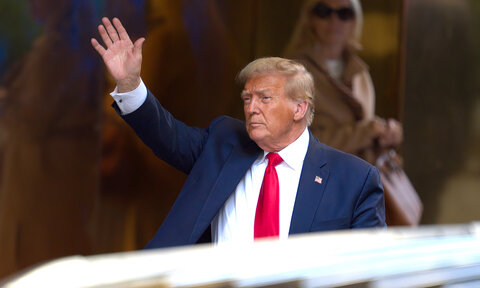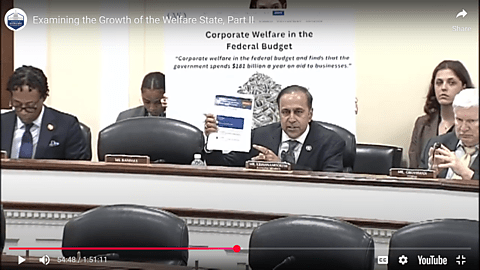
After former President Donald Trump announced his proposal to restrict credit card interest rates, I warned Americans that price controls are something to be wary of, no matter who is proposing them. I then posted a video on X showing how Trump criticized price controls and then proceeded to propose a price control ten minutes later. Needless to say, both supporters and critics flooded in to share their thoughts.
If I were to boil down the responses, there were really two main themes that came up in defense of Trump:
Interest rate caps are not price controls.
Usury laws already exist.
Let’s briefly walk through both of these themes to better understand where they go awry. As we will see, defenders of Trump may have more in common with supporters of Vice President Kamala Harris than they might think.
“Interest Rate Caps Are Not Price Controls”
For many people, the defense of Trump rested on the argument that interest rate caps are not price controls, but something else. But no matter how strongly they might believe otherwise, having the government control what rate of interest lenders can charge is to have the government control the price of loans. That is describing a price control.
When reading these responses, I couldn’t help but feel a sense of déjà vu for these same arguments were made in defense of Harris’s proposed price controls just a month earlier. One notable example occurred during an interview when US Commerce Secretary Gina Raimondo said Harris “is not for price fixing—that’s a distortion [and] a Republican talking point.” CNBC’s Sara Eisen correctly responded, “It’s confusing [considering Harris] called for a federal ban on price gouging for food…. That’s a place where the government then controls what the fair price of a good is.” In other words, that’s a price control.
“Usury Laws Already Exist”
Other people countered that usury laws have been around for years. However, the fact that something is old does not mean it is right. History has unfortunately provided many examples of bad ideas that just won’t go away. For instance, the postal banking pilot program was supported by many people because the US Postal Service provided banking services during the 1900s. Yet, the Postal Service’s most recent attempt had just seven customers despite being available in four cities for the past two years. And usury laws have not been without criticism: evidence suggests they likely harm people more than they help as would-be borrowers are forced across state lines or into black markets. As I wrote in Ryan Bourne’s book, The War on Prices, this experience has been seen internationally as well.
Turning back to the interview with Commerce Secretary Raimondo, she also appealed to history in defense of Harris. She even cited usury laws as part of her defense. Raimondo argued, “Many states in this country… have anti-price gouging regulations [and] usury laws. For hundreds of years, we have had laws which provide guardrails for the economy.” Again, however, it doesn’t matter if a Republican or a Democrat is proposing it, the age or existence of an idea does not justify it by default.
Conclusion
Trump’s proposal may be less bad than Harris’s proposal by virtue of being one price control instead of many, but that’s no defense for the hypocrisy of his statements in New York. He was correct in calling out the flaws of price controls. He should have stopped there. The Washington Post’s Catherine Rampell warned Harris, “When your opponent calls you ‘communist,’ maybe don’t propose price controls.” Trump should also heed this warning, but for him, perhaps the warning should be, “When you call your opponent communist, maybe don’t propose price controls.”
Are you interested in learning more about how price controls distort the market? Ryan Bourne’s latest book, The War on Prices, is available here and features 24 chapters that will walk you through price controls large and small.



